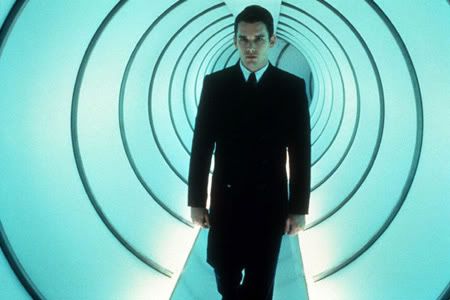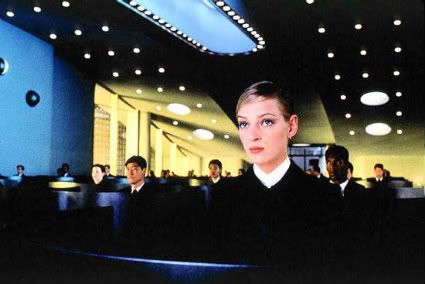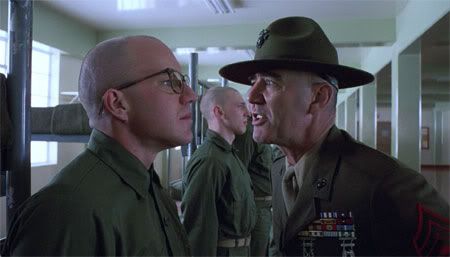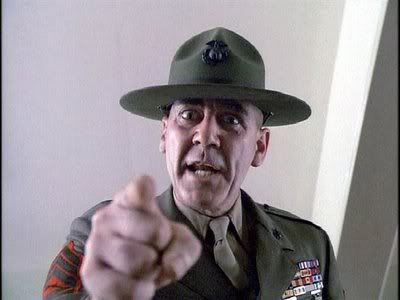
Don’t run, don’t run! I’m not going to talk about religion! I’m going to talk about that whole planning thing I mentioned. Remember that list that I posted, of things to do in order to achieve that level of great success that others will note? Here’s how it looks now:
Get plot points vetted.- Generate dramatis personae document.
- Work out rules of languages & magic.
- Write the damn thing (target word count:125k)
- Find a publisher.
After some tweaks here and there, all five people with whom I shared my plot points have said, “I’d read this” in one form or another. This means that the project (and that’s what I’m going to call it, at least for now – “The Project”) now has a definite course plotted, and I can set that bit of planning aside. This sort of thing happens when major endeavors are being planned in other forms of media, like television shows. Reference documents like that one are called ‘bibles’.
So my plot points shall hereafter be called the ‘story bible’.
Moving on, next we have the ‘character bible’. What’s in a character bible, you ask? I’m glad you did.
Origins
Everybody comes from somewhere. Parentage, homeland, education – all of these are contributing factors to who the character is when the audience is first introduced to them. Establishing origins before the story begins helps put everybody in a particular place along the plot’s path, like pieces on a chessboard. Though I doubt most characters will move in a completely straight line – that’d be kinda boring.
Personality
The aspects of a character’s personality encompass both good and bad things. A protagonist might be courageous or clever but will also have parts of themselves that they are unaware of, know they must overcome or might not even see as flaws – arrogant people don’t often admit to having failings, after all. Likewise, a villain who is nothing but malevolence and savagery is just boring. Unless his minions are all abysmally stupid or no more intelligent than a vicious dog, they’ll need to have some way of either concealing their villainy or downplaying it with charm or dispassion. This, like a character’s origin, should be established ahead of time.
Goals
We all want something. Some people want to rule the world (not everybody, Tears for Fears. Seriously.), some want to build a better mousetrap and some just want to get laid. If you clearly define a character’s goal before the story begins, it will be easier to keep them on track during the course of the plot. The better the definition of a character’s goals, the better your chances of having that character’s behavior remain consistent throughout, unless you plan to have them change goals. If that’s the case, make sure the change makes sense. Don’t just drop a hat and have it happen. Even if you are dealing with the fantasy genre, as I am, “A wizard did it” can really only get you so far.
Fears
If being around my wife while she plays the Sims has taught me anything, other than her delight at the various affairs of her simulated plaything, it’s that everybody is afraid of something. The fears that should get jotted down in the character bible should be large things, like losing one’s home, the death of a loved one or the ruining of a relationship or career, rather than flubbing a homework assignment or burning the roast. Sometimes these fears will be unrealized in the course of the story, and sometimes these will be major plot points. Which brings me to my final point…
Growth
In conjunction with the story bible, ask yourself how the character is going to change over the course of the story. What goals, if any, will they realize? What fears of theirs will come true? When change comes, will they have new goals, new fears? Will there be any change in their personality? Like the story itself, it may behoove you to plot the course of the character’s own journey.
Of course this is all just part of the procedure I’m attempting to make sure I remain motivated and get this right. Sometimes you might have no plan at all when you sit down to right, just letting the story grow organically out of the fertile grounds of your imagination. That’s okay, too. It just seems to me that the bigger the scope of your project, the more planning should be done before hand. Sort of a ‘measure twice, cut once’ thing. And this project that I’m brewing up? It’s going to be huge.
Seriously.
Huge.












